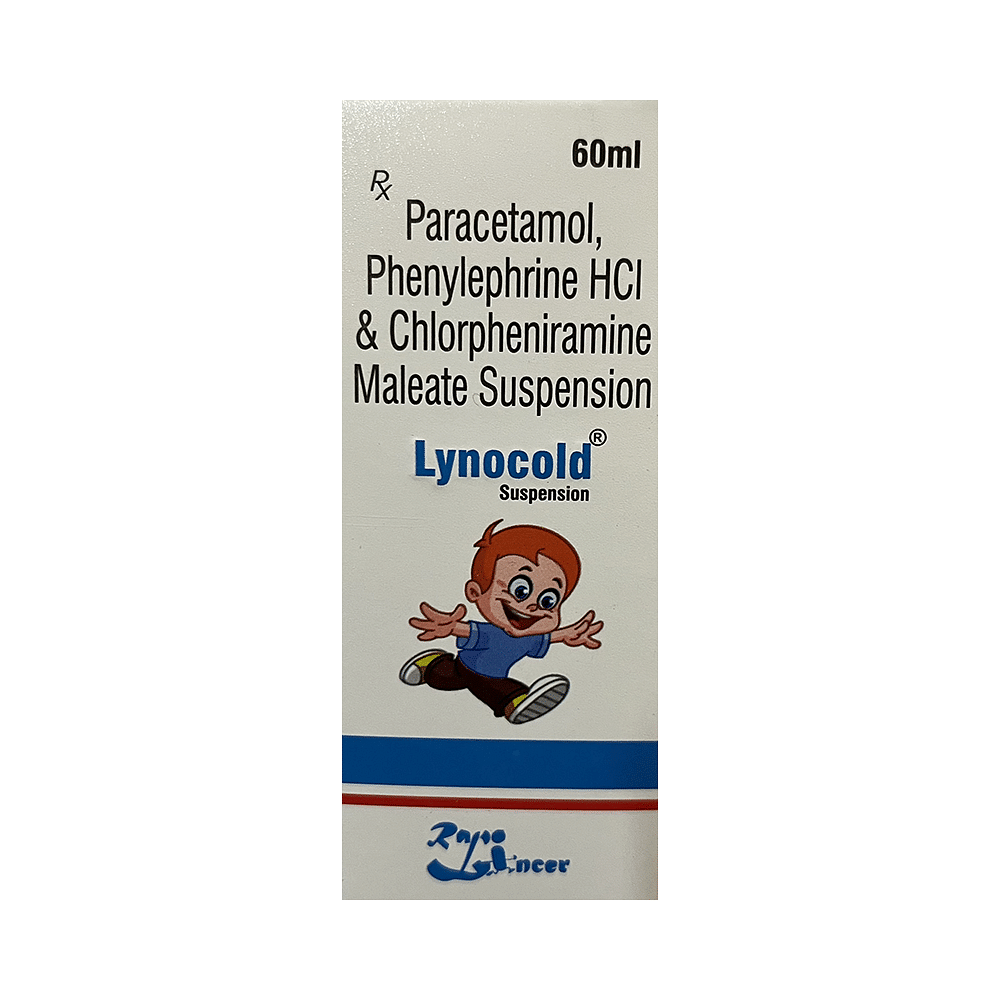
Ezrest-Kid Oral Suspension
Manufacturer
Qgensun Healthcare
Salt Composition
Chlorpheniramine Maleate (1mg/5ml) + Paracetamol (25mg/5ml) + Phenylephrine (2.5mg/5ml)
Key Information
Short Description
Ezrest-Kid Oral Suspension is a medication used to treat common cold symptoms in children, such as sore throat, runny nose, cough, sneezing, watery eyes, body ache, and fever.
Dosage Form
Oral Suspension
Introduction
Ezrest-Kid Oral Suspension is a combination of three medicines: Chlorpheniramine, paracetamol, and phenylephrine. It relieves common cold symptoms by targeting allergy symptoms, pain and fever, and nasal congestion. This medication is commonly prescribed in children to provide relief from cold symptoms.
Directions for Use
Ezrest-Kid Oral Suspension may make your child feel sleepy. Ensure your child takes extra care when taking part in physical activities.
How it works
Ezrest-Kid Oral Suspension is a combination of three medicines: Chlorpheniramine, paracetamol, and phenylephrine. Chlorpheniramine is an antiallergic that relieves allergy symptoms like runny nose, watery eyes, and sneezing. Paracetamol is an analgesic (pain reliever) and antipyretic (fever reducer). Phenylephrine is a nasal decongestant that narrows the small blood vessels providing relief from congestion or stuffiness in the nose.
Quick Tips
Ensure your child takes extra care when taking part in physical activities Never combine Ezrest-Kid Oral Suspension with other cold and flu medicines as that may lead to side effects Stop Ezrest-Kid Oral Suspension and immediately report to the doctor if your child develops an itchy rash, facial swelling, or breathing difficulties Practice self-care tips: clean and disinfect surfaces after sneezing and coughing, give your child plenty of fluids, restrain your child from having dairy products, coffee, and foods that are spicy and fried, make your child gargle with warm saltwater, and ensure your child takes enough rest
Related Medicines

Kuffex-Plus Oral Suspension Delicious Mango

Rinolife-P Oral Suspension

Bye-Cold Oral Suspension

Zencold Oral Suspension

Coldonov Oral Suspension

Coldip Oral Suspension

Daxcold Oral Suspension

Fevcold Oral Suspension

Tiruzicold-P Oral Suspension

Lynocold Oral Suspension
Frequently asked questions
What if I give too much Ezrest-Kid Oral Suspension by mistake?
Overdosing on Ezrest-Kid Oral Suspension can lead to serious side effects, including seizures, an increased heart rate, depression, cognitive impairment, and difficulty concentrating. Always follow the prescribed dosage as indicated on the packaging label. For accurate dosing, use the calibrated cup provided with the medicine by the manufacturer. Avoid using a kitchen teaspoon for measurement as it may not provide the correct volume.
How can I store Ezrest-Kid Oral Suspension?
Ezrest-Kid Oral Suspension should be stored at room temperature, in a dry place away from direct sunlight and heat. Ensure all medicines are kept securely out of the reach and sight of children to prevent accidental ingestion.
My child has a cough and fever. Can I give him two medicines together?
Do not administer your child more than one medication for coughs or colds at a time unless specifically advised by the doctor. This is because multiple medicines with the same active ingredients could result in an overdose, which can be dangerous for children. Always consult your child’s doctor before administering any medicine to them.
Can I give my cough medicine to my child?
Never administer medications intended for adults to your child. Children require formulations specifically designed for their needs and size, as these are crucial to preventing adverse effects. Always check the label before use on your child’s medication. Adhere to the prescribed dosage of your child's medicine precisely.
Can Ezrest-Kid Oral Suspension make my child sleepy?
Ezrest-Kid Oral Suspension may cause mild drowsiness in some children, leading them to feel tired. Never use this medication for inducing sleep. Forced sleep could mask any underlying sleep disorders such as insomnia. Always consult your doctor before administering this medicine to your child.


